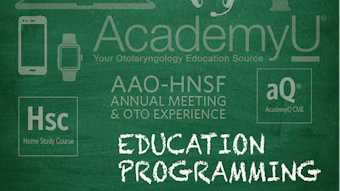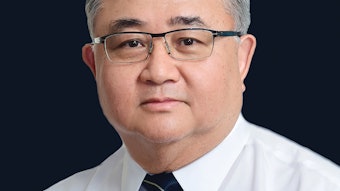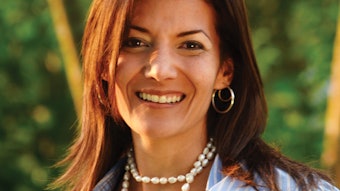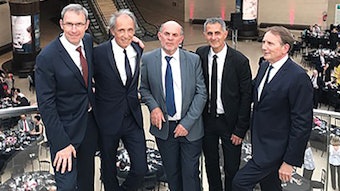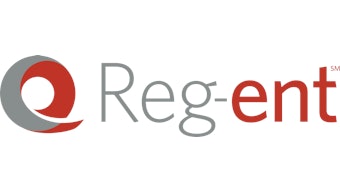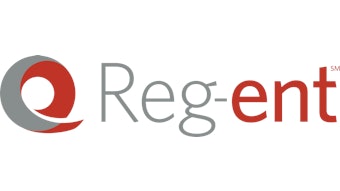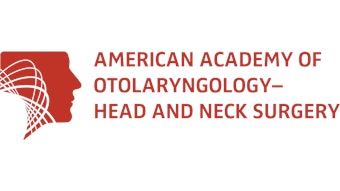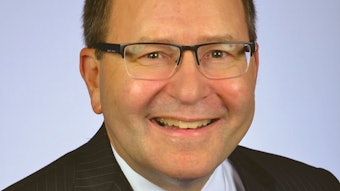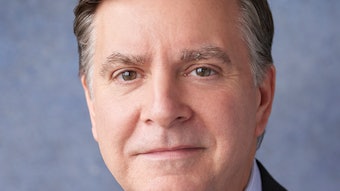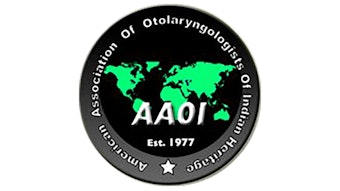Practice Profile: Dickinson ENT Clinic, Iron Mountain, MI
Patients’ needs in rural America are not much different than those who live near urban or academic centers. They may just have to travel farther for medical care.
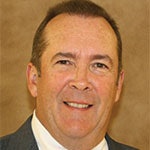 Ray Cameron, MD, PhD
Ray Cameron, MD, PhDPatients’ needs in rural America are not much different than those who live near urban or academic centers. They may just have to travel farther for medical care.
Dickinson ENT Clinic is located in Iron Mountain, MI, in the Upper Peninsula a few miles from the Wisconsin border, just north of Green Bay. Leading that clinic is Ray H. Cameron, MD, PhD, who began his independent practice in Iron Mountain in 1989 as a medical staff member of the Dickinson Health Care System. He joined the Dickinson ENT Clinic when it was formed in 2013. The clinic is home to a provider team that includes himself, the only otolaryngologist within a 50-mile radius, an audiologist, and a nurse practitioner.
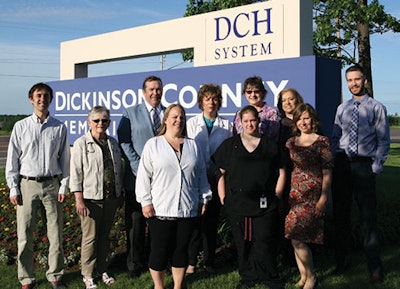 Back row, L to R: Aaron Lanning, FNP; Molly Gustafson, receptionist; Ray Cameron MD, PhD; Lisa Skoglund, LPN, clinical manager; Bonnie McMorrow, receptionist; Tammy Beauchamp, transcriptionist; Jeff Hutchinson, AuD.
Back row, L to R: Aaron Lanning, FNP; Molly Gustafson, receptionist; Ray Cameron MD, PhD; Lisa Skoglund, LPN, clinical manager; Bonnie McMorrow, receptionist; Tammy Beauchamp, transcriptionist; Jeff Hutchinson, AuD.Front row, L to R: Angela Reed, LPN; Jen Spitza, CMA; Jennifer Kindness, receptionist.
“With the complexity of medicine and all of the billing and coding requirements, it made sense to become employed by the Dickinson Health Care System. That way, I keep my focus on patient care in the exam and operating rooms and not on the administrative demands in the business office,” said Dr. Cameron. “After all, treating patients is why I became a doctor. I’ve been in practice so long here that I am starting to see some third-generation patients in my exam room. I am now putting tubes in the kids of the kids I put tubes in 20 years ago.”
Dickinson ENT Clinic is a part of the Dickinson Health Care System Hospital campus, which has 16 separate specialty clinics, 850 hospital employees, and four operating rooms. The hospital cares for 200,000 patients annually and is the only hospital within 50 miles. Dickinson County has a population of 30,000 people, but 40 percent of the population served by the Dickinson Hospital comes from neighboring Wisconsin.
“We are pretty geographically isolated and, of course, we are rural; but rural doesn’t mean backward or not advanced. We have state-of-the-art facilities and equipment to treat the patients that travel to see us,” said Dr. Cameron. “For specialty needs, some patients travel as much as 150 miles to see me.”
Forty percent of Dr. Cameron’s practice deals with children’s health concerns related to the specialty. Being the only otolaryngologist in the area, Dr. Cameron relies on the nurse practitioner to triage some of the more straightforward cases. “Over the course of my career, I have practiced the full spectrum of the specialty. It is not unusual on a surgery day to have a tympanoplasty, a thyroid case, a sinus case, a skin cancer with a flap or skin graft reconstruction, or more. I often think what a complex specialty we are. It is so hard to get bored with the variety of cases we see.”
Dr. Cameron’s education prepared him for the diversity of general otolaryngology practice. He earned his MD and his PhD in anatomy from Medical College of Wisconsin and did his residency in otolaryngology at Duke University Medical Center before being called to Iron Mountain.
“I was born in the Upper Peninsula, but grew up in Milwaukee where my father practiced law for 50 years. My family would always vacation in the upper peninsula. It’s a place that holds great memories of great times. When the opportunity came after my residency to work in this beloved community, I persuaded my wife, and in July 1989, we made the trip from North Carolina to Iron Mountain and haven’t looked back since,” said Dr. Cameron.
Iron Mountain isn’t host to the traffic woes of most metropolitan cities, a plus for Dr. Cameron. He is also proud of the progressive hospital and business community with heavy emphasis on entrepreneurial enterprises and the outdoor-related activities that make it a four-season tourist spot.
Another benefit of rural practice for Dr. Cameron is the scope. “In rural practice, you must do the whole range of the specialty. It is difficult to practice in non-metro communities if you want to focus on a subspecialty,” said Dr. Cameron. “I have concerns that we are not training enough residents to practice general otolaryngology. We have seen a real shift to subspecialties. This is great for patients with complex problems. However, for basic general otolaryngology needs, it is creating a hardship for patients, especially in rural areas.”
Dr. Cameron raised this discussion on ENTConnect, the online social community for Academy members. “Non-metro communities are finding it nearly impossible to recruit otolaryngologists. Currently, residents in training are taught by faculty who are, by and large, subspecialists. They are mentors and role models who shape the career choices of residents. Also, work hour restrictions can negatively affect the level of preparation of residency. Should there be fellowship training in general otolaryngology? Would anyone choose this pathway?”
Otolaryngology isn’t the only specialty facing these issues in the age of subspecialization, but for Dr. Cameron it is also a bit personal. “Not only do I care about the long-term impact on my specialty and the patients my specialty serves, but I have a selfish concern. I am closer to the end of my career than the beginning, and I would love to recruit someone fresh out of residency to continue this practice. I would love the opportunity to mentor the next generation of Iron Mountain’s otolaryngologist, but we are having a very hard time with recruitment.”
Practicing in rural America as the only otolaryngologist for miles around limits Dr. Cameron’s face-to-face interactions with colleagues of the same specialty. “I do miss the opportunity to talk shop with my peers. That is one thing I don’t get on a daily basis, which is why I love going to the Annual Meeting, to keep up with the latest innovations and, if appropriate, incorporate them into practice.”
Dr. Cameron also finds value in some of the other Academy offerings such as ENTConnect, clinical practice guidelines, Bulletin, Home Study Course, and billing and coding resources.
Dr. Cameron’s career goes beyond medical practice. He has been chair of the credentials committee, served as chief of the medical staff, and has been on the hospital’s board of trustees. “Being a smaller community provides a big opportunity to be a part of medical staff leadership and to be active in the hospital’s operational and financial challenges.”
Being a part of the Iron Mountain surrounding community is also important to Dr. Cameron. He is a community speaker and visits area schools to talk to students about the practice of medicine and otolaryngology. “I like to go to the sixth-grade classes to talk about being a doctor. I think about the many role models who children get exposed to that aren’t the best, and so I try to balance it out.”
Extending that positive influence, Dr. Cameron established a yearly scholarship at the school his own children attended. The program helps students with a desire to enter the healthcare field and to date has helped produce a few nurse practitioners and one audiologist.
“It is amazing the lives we touch through our medical practice and how we can extend that impact into the communities where we live.”

